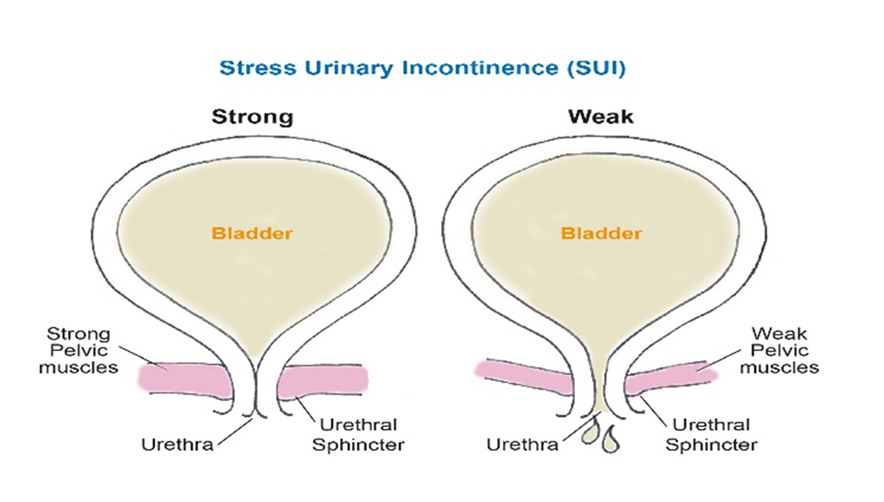Pelvic floor muscle dysfunction
Pelvic floor muscle problems are very common in the adult female population and can cause various problems:
- Stress Urinary Incontinence – leakage when coughing, sneezing, running, jumping or bending.
- Overactive Bladder symptoms – passing urine frequently, needing to empty the bladder urgently, urge urinary incontinence (leaking with the need to empty the bladder).
- Mixed Urinary Incontinence – a combination of Stress and Urge Urinary Incontinence.
- Prolapse – bulge in the vagina due to descent of the bladder (cystocele), rectum (rectocele) or uterus (uterine prolapse).
- Sexual Dysfunction – including dyspareunia (pain on intercourse), vaginismus (spasm of the pelvic floor muscles on attempted penetration) and coital incontinence (urine leaking during intercourse)
- Pelvic pain – due to various causes including pudendal nerve irritation/damage, scar tissue, vaginal tissue hypersensitivity, pelvic floor muscle spasm,
- Obstetric trauma – due to perineal tears, episiotomy or instrumental delivery.
Stress Urinary Incontinence (SUI)
Stress Urinary Incontinence occurs when more pressure is put on the bladder than the pelvic floor muscles and urethral sphincter are able to withstand. This results in urine leaking from the bladder e.g. when coughing, sneezing, laughing, jumping or running.
Pelvic floor muscle training is often all that is needed to treat this type of incontinence. You need both good background muscle tone and fast pelvic floor contractions to prevent stress incontinence. The pelvic floor exercise leaflet - PDF explains how to do both the slow exercises for background muscle tone and the fast pelvic floor exercises. To begin with you will have to contract the pelvic floor muscles consciously before you laugh, cough, sneeze, lift etc. but in time these muscles will contract spontaneously on extra stress.

Urge Urinary Incontinence
Management of Urinary Frequency, Urgency and Urge Incontinence
